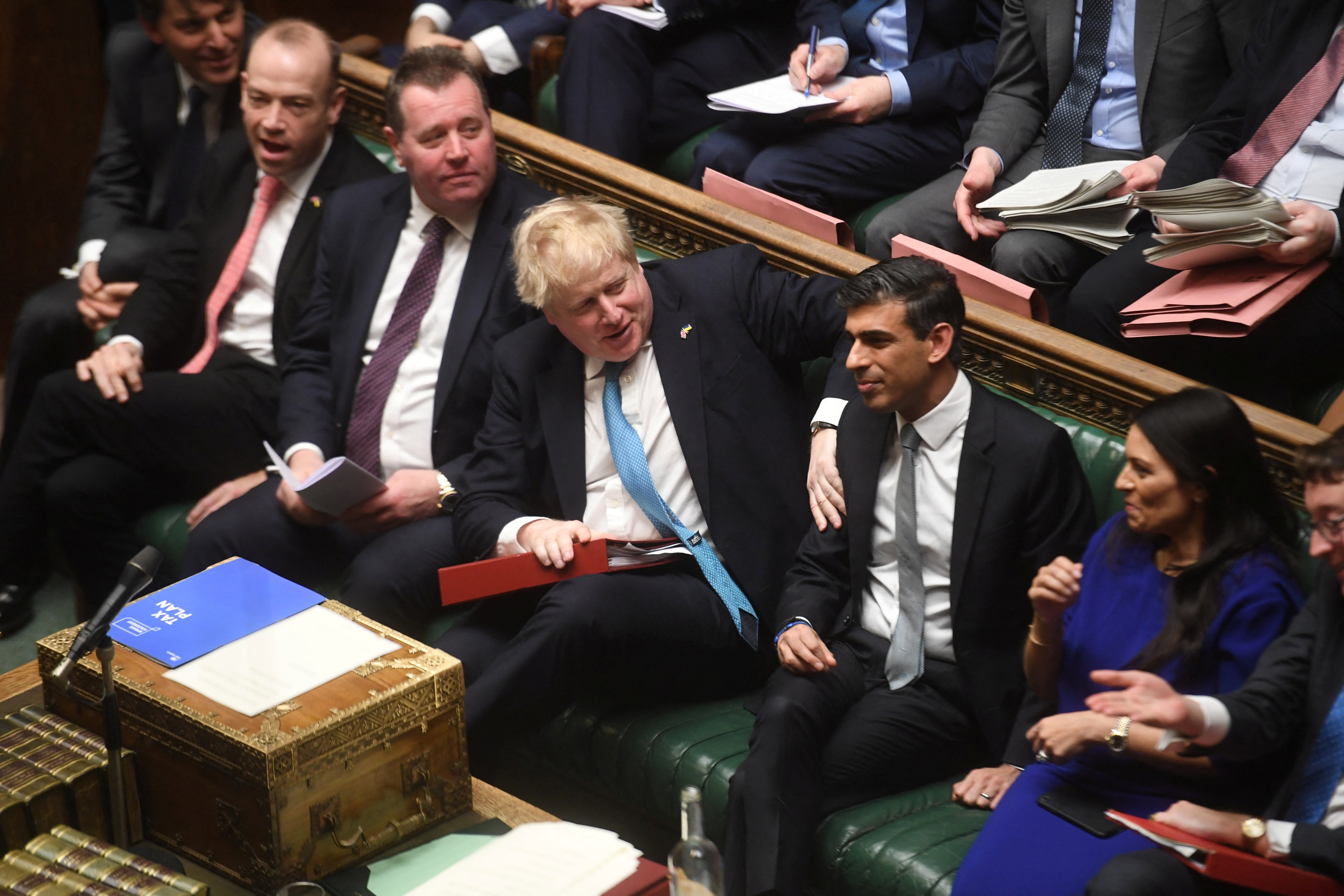Boris Johnson and Rishi Sunak may have to get used to negative poll numbers
Neither have great personal approval ratings – but pressure would be higher without events in Ukraine leading the global diplomatic agenda, argues Keiran Pedley

The last few months are an excellent example of how difficult it is to have neatly packaged ideas about politicians and their policies.
First, Boris Johnson was buffeted by stories about Downing Street parties, which damaged both his and the Conservative Party’s poll ratings. Then came Ukraine, which Britons think Johnson has done a fairly good job of handling. And running alongside the Russian invasion of Ukraine has been a cost of living crisis that has prompted Rishi Sunak’s favourability to plummet into the negative, leaving him on a net rating of -18 (44 per cent unfavourable compared with just 26 per cent favourable). The chancellor has also had plenty of time in the headlines this week.
As a social research company, we ask people about these things separately, but what’s particularly interesting is tracking people’s views over time on things like favourability and voting intention. Because those three issues (and more besides) all overlap, their confluence is what shapes people’s opinions as much as they do individually.
This is most obvious in Boris Johnson’s own favourability ratings. In November 2021, his net favourability was -27, having gradually declined since May. Then, in January 2022, after stories about parties in Downing Street during the Covid-19 pandemic had dominated the news landscape, his net favourability reached a nadir of -39, with 61 per cent of Britons having an unfavourable opinion of him.
At this point, there begins to be speculation: has the Teflon finally worn off? Is this a scandal too far for the prime minister, who has always enjoyed remarkable political luck and escaped from many an issue before? MPs were submitting letters to the 1922 Committee, and the magic number of 54 was on the minds of all Westminster watchers.
And it wasn’t just Johnson’s own ratings that took a hit. Ipsos’s voting intention polling showed a nine-point Labour lead in January. In the same month, one in four people said they were concerned about a lack of faith in politics/politicians in our Issues Index, the highest level we’ve recorded.
But then the Russian invasion of Ukraine happened. And the news has been dominated by foreign affairs, and the minds of the nation turned from domestic issues towards the world stage – concern about defence and foreign affairs is top in our most recent Ipsos Issues Index, ahead of the economy, inflation, or the pandemic. And as Britain has helped lead the charge on sanctioning Russia and providing aid to Ukraine, Johnson has benefited from the positive view of his handling of the crisis.
Johnson’s net favourability is now back up to -29, not staggeringly impressive, and 54 per cent of Britons still say they have an unfavourable opinion of him. But given we’re only a couple of months past the threat of him being removed by his own MPs, I suspect he’ll be quietly rather pleased that “events” have come to his rescue.
And those “events” are helping Johnson in more ways than one. Not only is he benefiting from the positive view of his handling of Ukraine, but when it comes to what is causing the cost of living crisis, three in four Britons think that the pandemic, the global economy and Russia’s invasion of Ukraine are contributing to it. At the same time, 64 per cent say it’s down to the government’s policies. So again, world events are helping Johnson weather the storm around him, but the cost of living crisis still looms large in the public mind, with the potential for damage down the line.
With fixed penalty notices now being issued for parties in Whitehall and Downing Street, it may well be that the bounce in Johnson’s ratings has just been a temporary reprieve. But with a general election still probably at least 18 months away (given the current boundary review process) and the most obvious potential challengers to Johnson from inside his own party – such as Sunak – having issues of their own in terms of their poll ratings, it looks probable that the prime minister has time on his side.
And as we wonder whether that time will prove that the bounce from events in Ukraine was just a postponement of public punishment, or marked a turning point in his ratings, only one thing is certain: there will be more “events”, and – as one of his predecessors said – they are the greatest challenge for any prime minister.
Keiran Pedley is director of politics at Ipsos UK



Join our commenting forum
Join thought-provoking conversations, follow other Independent readers and see their replies
Comments